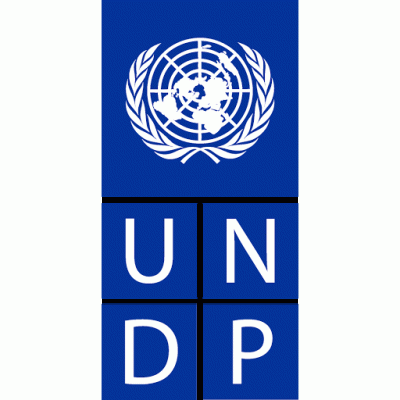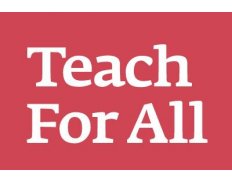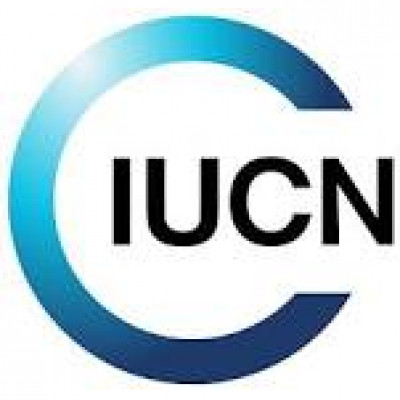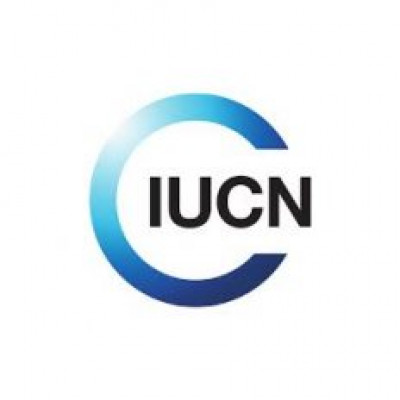Details
Description
BACKGROUND
The UNDP Mauritius Country Office Environment Unit manages a portfolio of donor funded projects worth 65 m USD covering various focal areas such as Climate Change Adaptation and Mitigation, Biodiversity, Sustainable Land Management, and Chemicals and Waste. The principal donors for these projects are the Green Climate Fund, the Adaptation Fund, and the Global Environment Facility. The Government of Mauritius also provides funding for dedicated assignments. The portfolio includes 3 regional projects and 7 local projects, the biggest being the GCF funded Accelerating the Transformational Shift to a Low Carbon Economy project worth 28 M USD.
Most projects are executed under National Implementation Modality (NIM) and in few cases the Direct Implementation Modality is used. In managing the portfolio, one key challenge will be to initiate the recently approved batch of GEF 5 and GEF 6 projects which include Chemicals and Waste, Transport, Sustainable Land Management and Capacity Building Initiative for Transparency. The incumbent will be expected to manage a complex portfolio while getting up to speed with the UNDP GEF rules and Donor rules on project management. In addition, the NIM context relies on the application of Government procurement modalities.
UNDP’s Social and Environmental Standards (SES) underpin our support for sustainable development. The starting point to ensure these standards are applied is through UNDP’s project-level Social and Environmental Screening Procedure (SESP), which is a requirement for projects. The objectives of the SESP are to: (a) integrate the SES Overarching Principles (human rights, gender equality and environmental sustainability); (b) identify potential social and environmental risks and their significance; (c) determine the Project's SES risk category; and (d) determine the level of assessment and management required to address potential social and environmental risks and impacts. All guidance on UNDPs Social and Environmental Standards can be found in the SES Toolkit.
The immediate priorities of the Head of Environment, Social and Environmental Standards, will be to ensure that the ongoing GCF project moves into Phase 2 rapidly. The recruitment of various project teams will need to be facilitated and pipeline projects on inter alia Energy Efficiency and Coastal Protection will need to be followed up and materialized. The incumbent will be expected to monitor the application of the Country Programme and ensure that the various indicators are attained.
Position Purpose
Under the guidance of the Resident Representative (RR) with oversight from the Assistant Resident Representative Programme (ARR), the Head of the Environment, Social and Environmental Standards Unit acts as one of the advisers to Senior Management on all aspects of Environment and Climate Change portfolio, In addition to the senior managerial functions, the incumbent is responsible for providing the environment unit with management and supervision responsibilities, strategic planning, proactive delivery and effective implementation of all thematic areas under her/his purview, namely, natural resources management, Energy, climate change, disaster risk management, and inclusive economic growth.
The incumbent will cover the entire range of functions in the programme cycle, from conceptualization and formulation to monitoring and evaluation in liaison with the RR and ARR and other Programmes and Operations team members. He/she plays a lead role in the analysis of the social, economic and political context in Mauritius and advises on responses to emerging complex challenges and possible areas for UNDP interventions within the Country Programme Document.
The incumbent will endeavor to identify opportunities for cross cutting collaboration with other programme pillars particularly in areas of women’s empowerment, local representation, digital transformation and natural resource management and rural development, the representation of vulnerable groups, youth and the disabled.
As Head of Unit, the incumbent heads the Climate Change Mitigation, Adaptation and Natural Resource Management portfolios forging partnerships with programme staff in other UN Agencies, UNDP HQs staff, Government officials, technical advisors and experts, multi-lateral and bi-lateral donors, private sector and civil society to successfully mobilize resources and implement UNDP programme.
Furthermore, the incumbent is expected to substantively contribute to the development of the upcoming Country Programme. The Head of Environment will be responsible for the first layer oversight, capacity building and knowledge management to strengthen SES Implementations in the MCO. The incumbent will not be responsible for the preparation and execution of SES instruments during NIM project implementation (as this is a project execution function under the Implementing Partner) but will rather quality assure project-level safeguards instruments prepared by the project teams, and monitor, advise and oversee the project teams in executing the relevant safeguard management measures. He/She will provide key risk management and SES compliance capacity for the Country Office, helping ensure UNDP delivers on its commitment to protect people and the environment across all programming and avoid inadvertent harm.
As member of the CO leadership team, he/she may also advise on potential areas of policy that could have an impact on the country in areas related to Environmental protection, Energy, Natural Resource Management, Climate Change, Inclusive growth and disaster risk management issues while strengthening the social and environmental outcomes of the programme and projects. On a day- to-day basis, the incumbent provides direct support to the Resident Representative and ARR in relation to policy advice and guidance to strengthen national capacity to accelerate delivery ensuring cross-programme, synergies and complementarities.
DUTIES & RESPONSIBILITIES
Leads the strategic direction of the Environment Unit:
As a member of the CO management team, ensures the strategic direction of UNDP programme on Environment and Energy Portfolio Growth focusing on achievement of the following results:
Thorough analysis of the political, social and economic situation in the country and collaborative preparation/revision of CCA, UNSCDF, CPD, CPAP, AWP and other documents;
Identification of strategic programme areas of cooperation;
Operationalization of UNSDCF/ CPD in collaboration with the main partners and other UN Agencies identifying the possibilities for joint programming;
Analysis and presentation of UNDP policies and their implementation in the CO;
CO business processes mapping and establishment of internal Standard Operating Procedures in Results Management (PQA, IWP, ROAR etc) and control of the workflows in the Programme Unit.
Management and supervision of the Environment Unit team:
Manages the CO Environment Unit and supervision of the team focusing on quality control of the full cycle of programming from formulation to implementation achieving the following results:
Effective application of RBM tools, establishment of management targets and monitoring achievement of results;
Design and formulation of CO programme within the area of responsibility, translating UNDP priorities into local interventions;
Coordination of programme implementation with the executing agencies;
Strategic oversight of planning, budgeting, implementing and monitoring of the programme, tracking use of financial resources in accordance with UNDP rules and regulations. The Head of Unit Environment performs the function of Manager Level 2 in Atlas for the development of projects transactions approval;
Effective monitoring, measuring the impact of environment programme including timely readjustment of programme where necessary;
Follow up on audit recommendations reporting all exceptions on a timely basis;
Aggregate reports are regularly prepared on activities, outputs and outcomes including preparation of donor reports;
Organization of cost-recovery system for the services provided by the CO to projects in close collaboration with the head of Operations.
Policy Strategy and Programme Advice on inclusive growth, Environmental Mitigation and adaptation:
Policy, Strategy and Programme Advice to Environmental Programmes including inclusive growth,
Energy, Environmental protection, natural resource management, Disaster Risk Management and private sector development:
Advise, guide and provide support to the implementation of Environmental mitigation and adaptation including Environmental protection, natural resource management, Energy, Disaster Risk Management and Private Sector Development Programmes;
Seek engagement to promote social business opportunities and solutions;
Develop in consultation with the Government of Mauritius (GoM) a plan for engagement in local economic development with a view to integrate and include growth approach while safeguarding natural resources and planning for disaster risk management and preparedness;
Provide inputs to Governmental Economic working groups including those related to business development in private sector development sub-groups;
Provide policy advice to the GoM entities to enable private sector engagement and Public Private Dialogue;
Promote sensible environmental approaches to development with a view to minimize environmental impact of private sector development initiatives.
Strategic partnerships and support to resource mobilization:
Leads and maintains strategic partnerships and supports the resource mobilization in cooperation with the CO Senior Management and The Policy Support Unit focusing on achievement of the following results:
Implementation of the CO partnerships and resources mobilization strategies to achieve programme outcomes;
Creation and coordination of partnerships with the UN Agencies, IFI’s, government institutions, bi-lateral and multi-lateral donors, private sector, civil society etc;
Determination of programmatic areas of cooperation, based on strategic goals of UNDP, Country needs and donor priorities;
Analysis and research of information on donors, preparation of substantive briefs on possible areas of cooperation and identification of opportunities for cost-sharing.
Social and Environmental Standards strategy :
Responsible for oversight, capacity building and knowledge management to strengthen SES Implementation across the MCO portfolio, from programme and project design and implementations focusing on achievement of the following results:
Strengthen the social and environmental outcomes of Programmes and Projects
Avoid adverse impacts to people and the environment
Minimize, mitigate, and manage adverse impacts where avoidance is not possible
Strengthen UNDP and partner capacities for managing social and environmental risks
Ensure full and effective stakeholder engagement, including through a mechanism to respond to complaints from project-affected people
Provision of top-quality policy advice services to the Government and facilitation of knowledge building and management :
Leads and promotes communities of practice and the provision of top-quality advisory services and facilitation of knowledge building and management focusing on achievement of the following results:
Identification of sources of information related to policy-driven issues;
Identification and synthesis of best practices and lessons learned directly linked to programme country policy goals;
Coordination of development of policies and institutions that will address the country problems and needs in collaboration with the Government and other strategic partners;
Establishment of advocacy networks at national level linked to international networks;
Relevant, high-impact advocacy campaigns are implemented with key partners;
Sound contributions to knowledge networks and communities of practice;
Organization of trainings for the operations/ projects staff on programme.
Supervisory/Managerial Responsibilities:
The Head of Environment Unit shall supervise the Project Managers and work with the project staff to ascertain emerging needs in the thematic area as well as opportunities to capitalize on new or innovative programme strategies as well as to ensure coherence of programme strategies and activities.
COMPETENCIES
Core Competencies:
Achieve Results - LEVEL 2: Scale up solutions and simplifies processes, balances speed and accuracy in doing work
Think Innovatively - LEVEL 2: Offer new ideas/open to new approaches, demonstrate systemic/integrated thinking
Learn Continuously - LEVEL 2: Go outside comfort zone, learn from others and support their learning
Adapt with Agility - LEVEL 2: Adapt processes/approaches to new situations, involve others in change process
Act with Determination - LEVEL 2: Able to persevere and deal with multiple sources of pressure simultaneously
Engage and Partner - LEVEL 2: Is facilitator/integrator, bring people together, build/maintain coalitions/partnerships
Enable Diversity and Inclusion - LEVEL 2: Facilitate conversations to bridge differences, considers in decision making
Functional & Technical competencies:
Business Direction & Strategy - Strategic Thinking : Ability to develop effective strategies and prioritized plans in line with UNDP’s objectives, based on the systemic analysis of challenges, potential risks, and opportunities, linking the vision to reality on the ground, and creating tangible solutions.
Business Direction & Strategy - Effective Decision Making : Ability to take decisions in a timely and efficient manner in line with ones’ authority area of expertise and resources.
Business Management- Portfolio Management : Ability to select, prioritise and control the organisation’s programmes and projects, in line with its strategic objectives and capacity; ability to balance the implementation of change initiatives and the maintenance of business-as-usual, while optimizing return on investment
2030 Agenda: Planet - Nature, Climate and Energy: Knowledge of Energy efficiency concepts, renewable energy, access to energy, technologies and practical application. Knowledge of climate change Including climate change international regime) and ability to apply to strategic and/or practical situations
2030 Agenda: Engagement and Effectiveness – Effectiveness: Ability to Ability to contribute into results based programme development and management, through primary research and analysis.
Partnership management – Emerging Partnerships and Multi-stakeholder engagement and funding: Ability to engage with emerging partners, develop and manage a strategy and develop approaches to developing and managing these new strategic partnerships. Knowledge and ability to forge multi-stakeholder partnerships, and remove any obstacles to resource mobilization and multi-stakeholder funding platforms
Partnership management - Strategic engagement : Ability to capture and sustain attention, interest and agreement of high-level, influential policy and decision makers and secure their buy-in of high-level vision and objectives.
REQUIREMENTS:
Education:
Master's degree in Environmental Science, Law or Management, Energy, Engineering, Natural resources management, climate change, environmental economics and finance, development studies, Disaster Risk Management or a related area.
Experience:
2 years of relevant experience at the national or international level in in programme design on Environmental protection, Energy, Natural Resource Management, Climate change, inclusive growth, Development studies or disaster risk management issues;
At least 2 years’ experience in a development programme management position is required;
Experience in social and environmental safeguards is an advantage.
Experience in training and capacity building skills related to environmental and social safeguards is desirable
Technical expertise in Environment (Adaptation, energy, Natural Resource Management, Mitigation, Climate Action) or Development Economics and Livelihoods programmes is an advantage
Experience in resource mobilisation and establishing inter-relationships among international organizations and national governments is desired
Hands-on experience in design, monitoring and evaluation of development projects is an advantage
Demonstrated experience and knowledge of development programming and familiarity with the United Nations system is an advantage
Knowledge and experience working in the Mauritian development context is required
Experience managing vertical fund programmes is highly desirable
Experience in the usage of computers and office software packages, experience in handling of web-based management systems.
Languages:
Fluency in written and spoken English (Required);
French (Desired);
Mauritian Creole an advantage (Desired).






